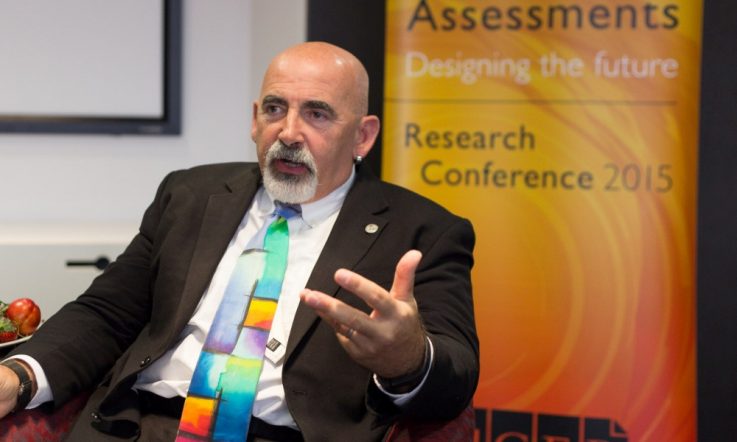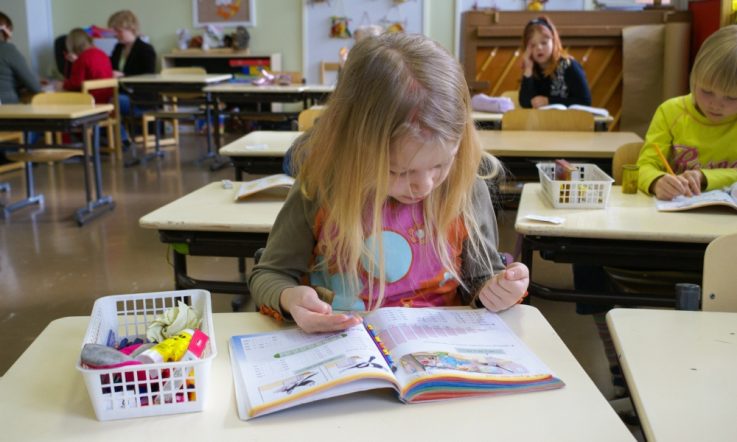What should LGBTQ-inclusivity look like in the K-12 curriculum? Should such content require parental consent or consultation? And, more generally, what educational gains or losses might be encountered by explicitly including LGBTQ (lesbian, gay, transgender and queer/questioning) educational content in classrooms?
These were the questions asked of parents across the Australian state of New South Wales who participated in a qualitative study carried out by Dr Jacqueline Ullman and Associate Professor Tania Ferfolja from Western Sydney University.
The academics share their findings in the Australian Journal of Teacher Education. Elephant in the (class) room: parental perceptions of LGBTQ-inclusivity in K-12 educational contexts analyses interview data to provide a greater understanding of parental beliefs and desires regarding LGBTQ-inclusive education.
The authors consulted with 22 parents of school-aged children across urban, regional and rural NSW, and focus group interviews were held in seven geographical areas. Participants came from a range of ethnic, social, linguistic and religiously diverse families.
Their journal paper notes that very little is formally documented about what parents want and expect in terms of LGBTQ-inclusivity. ‘The research that does exist hints that teachers' fear of parental disapproval may well be imagined: Australian parents generally appear to trust their children's schools to provide suitable content in comprehensive sexual education classes.'
Ullman and Ferfolja say assumptions about these issues appear to justify teachers', curriculum writers' and policy makers' silences regarding sexuality and gender diversity in the K-12 classroom. ‘A big reason we decided to undertake this research is because we know from other research in the field that conversations around LGBTQI-inclusivity are not happening in schools,' Ullman tells Teacher.
What did parents think?
Parents across all eight focus group interviews in the study were in favour of some form of LGBTQ-inclusive education and offered a range of suggestions for where and how this information might be best included in K-12 settings.
‘I will say that, by and large, the parents that we interviewed across NSW were in near universal agreement that content related to LGBTQI-inclusivity be included in schooling from the early primary years, all the way through to Year 12. Now, of course there's some variation in how parents felt that should be included,' Ullman shares.
She says parents highlighted lessons on family in the early primary years as a logical space for broaching the topic of same-sex-headed households. ‘A big take-home message is that parents felt that younger kids (so, younger primary school aged kids) don't have natural prejudices. They're basically saying that prejudices are learned, they're learned behaviours. So including diverse family structures, for example, or just talking about love and relationships in a manner that is inclusive of same-sex attracted individuals and gender diversity – having those conversations actually paves the way for a more open-minded social populous.'
The journal paper notes that these findings stood out in sharp contrast to the ‘moral hysteria steeped in discourses of childhood innocence and age-appropriateness'.
When it came to Health and Physical Education for older students – a curriculum area which covers topics pertaining to comprehensive sexual health education – parents in the study were ‘100 per cent supportive' of the inclusion of LGBTQ-inclusive content. However, Ferfolja tells Teacher that parents generally felt schools need to be providing them with information about the sorts of things that would be taught in the classroom around these issues, and that doing so would break down a lot of the fears and concerns that some parents have.
The authors say that parents advocated for more teacher training in this area and were eager for teachers and school leadership staff to feel departmentally supported to enact LGBTQ-inclusive practices. They felt that teacher training would increase the level of comfort teachers felt with addressing these topics with an older audience, particularly if topics related to sex and sexual expression were raised.
‘They kind of felt universally that … if teachers had proper training and if the syllabus was transparent, that schools would do a better job of this than what parents would be doing in the home,' Ullman shares.
Teachers not helped by ‘vague' references
According to the journal paper, teachers appear to be unclear about what is allowable and/or mandated with regards to LGBTQ education and what is not, given how ‘vague' the national HPE curriculum is. ‘Considering the way this topic is presented in official guiding documentation, it is not surprising that Australian teachers are concerned about parental complaint if they address LGBTQ-inclusive material with their students.'
Ullman tells Teacher that while there are some variations by each state and territory, in NSW the words ‘lesbian', ‘gay', ‘bisexual', ‘transgender' and ‘intersex' do not appear in that documentation at all. ‘…The documentation is riddled with references to teachers making choices aligned with the values or the ethos of the “local school community”, but yet that's a black box for a lot of schools.'
Ferfolja adds: ‘There is also a [New South Wales Department of Education] document called the Controversial Issues in Schools policy and that also talks about having to get parental permission if you're going to raise a controversial issue, sensitive topic – so what does that actually mean for teachers?
‘Is it, “I'm going to do a unit of work that includes gay families, do I need to get parental permission to deal with this?” Or is it like, “if a child comes up to me and talks about going to Mardi Gras, do I have to close the conversation down?” There's no real sense of what can and can't be done.'
Recruiting parents for the study
In undertaking this study, the authors tried several recruitment approaches: paid advertisements in local, free newspapers; paid, targeted advertising on social media; and advertisements in government school newsletters.
The journal paper notes that only five of 39 primary and secondary schools approached agreed to include a parent recruitment advertisement in their school newsletter, despite the project having received NSW Department of Education ethical approval and support. ‘In the majority of cases the request was declined at the principal's discretion as the research area was deemed incompatible with their parent community.
‘While numerous explanations may be used to rationalise such explicit rejection of the project, the authors view this as evidence of educators' reluctance to engage with LGBTQ topics or raise these issues with parents, assuming at best that parents will have little if any interest in such a topic.'
Ullman says that several principals rejected the advertisement because they claimed ‘this wasn't an issue in their school community'.
‘The implication of that being that “this is only appropriate if we have out, queer people at our school, and because we don't we don't need to be having these conversations”, and that is actually something that we hear from our pre-service teachers sometimes – it's not an uncommon sentiment,' she adds.
Future research
Ullman says that, given all this information, it's no surprise that principals and teachers are going to be erring on the side of caution when addressing these issues in classrooms. In their journal paper, the academics argue: ‘…it is indefensible for teachers and departmental staff to silence and render invisible LGBTQ subjectivities based on assumed or misinformed notions of parental desire.'
Ullman says: ‘If we keep making curricular decisions that impact hundreds of thousands of kids, if we're making these decisions that impact huge groups of the school community based on assumptions, based on ideas with no actual research backing them up, based on fear – that's just curricularly-irresponsible.'
While this study was limited by the number of participants who self-selected to take part, the researchers are hoping to secure additional funding to expand it nationwide, to gather reliable large-scale, nationally-representative data on this issue.
‘We will continue to push with this work to find out what parents really do think so when we're making decisions in the future, we're able to give information back to the people writing the curriculum and people creating the policies to say, “look, here is what your community actually thinks”.'
References
Ullman, J., & Ferfolja, T. (2016). The Elephant in the (Class) Room: Parental Perceptions of LGBTQ-inclusivity in K-12 Educational Contexts. Australian Journal of Teacher Education, 41(10), 2.
Consider how you include LGBTQ issues in your classroom. Do you err on the side of caution when approaching these issues? Are you aware of the guidelines in your own state or territory?
As a school leader, is this an issue you’ve broached with your parent community? Are you aware of their values regarding LGBTQ-inclusivity?



